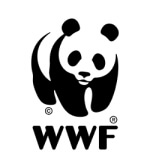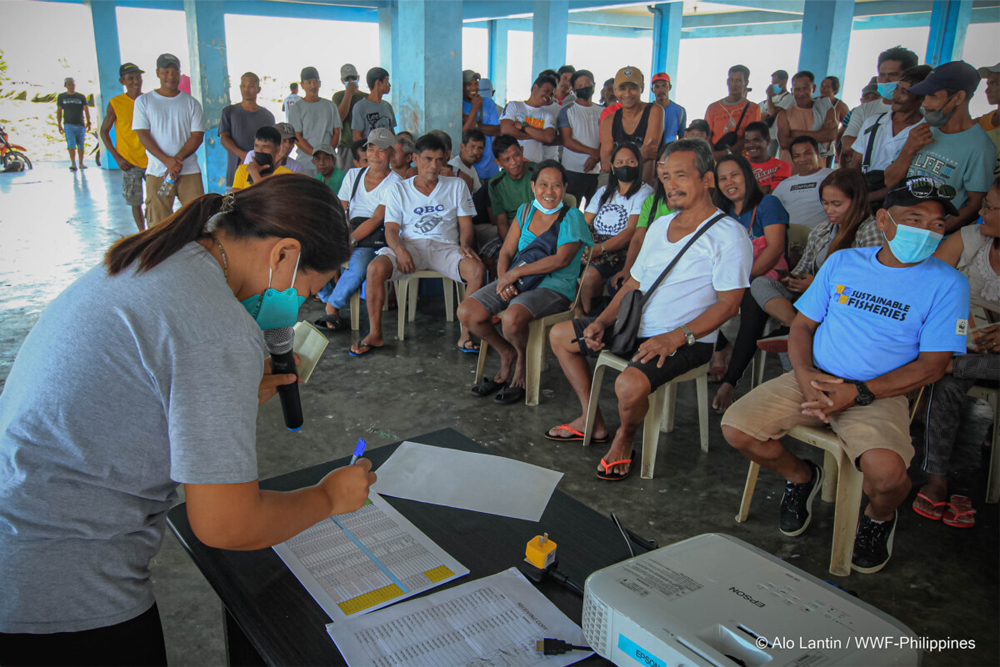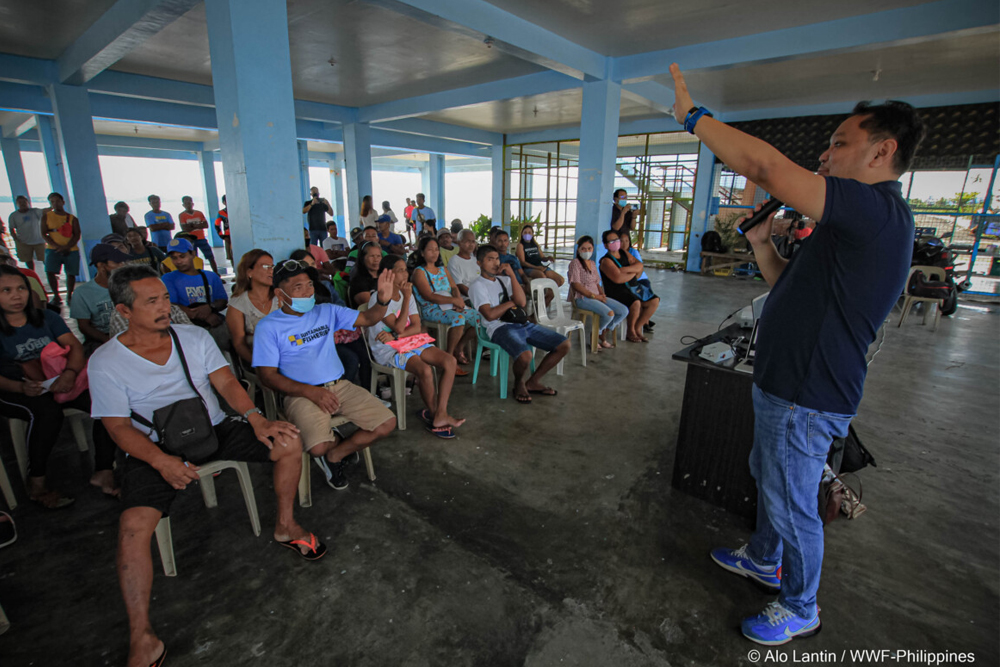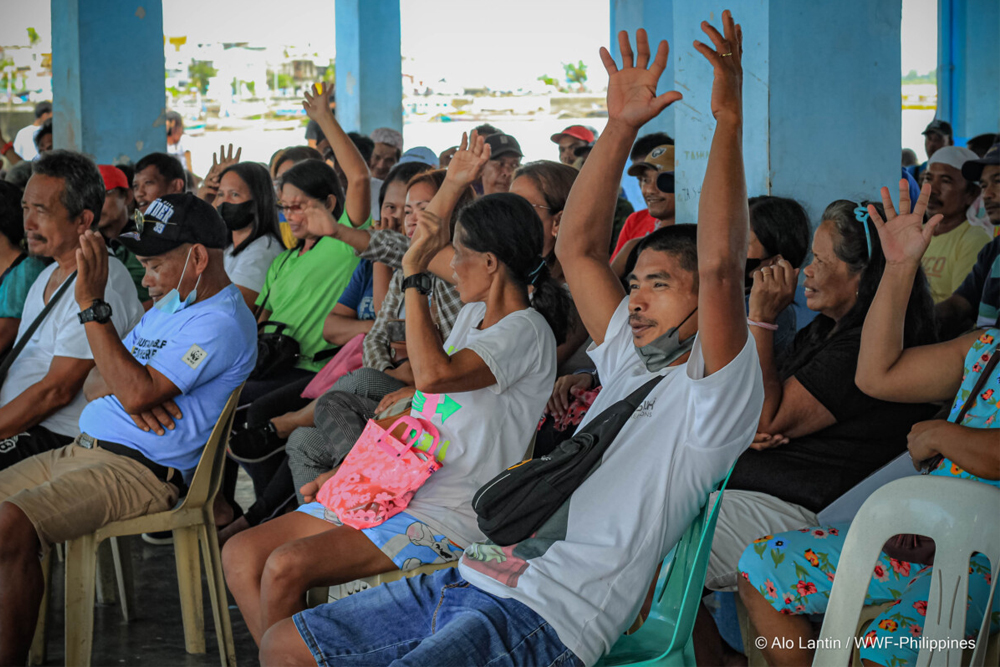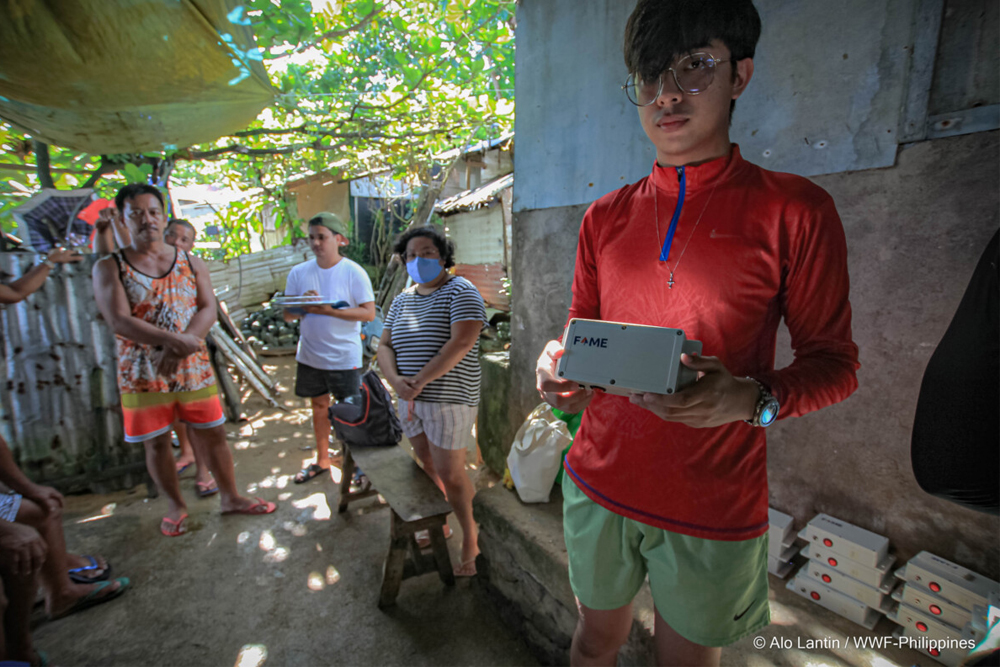Bicol – The World Wide Fund for Nature Philippines (WWF-Philippines), together with Futuristic Aviation and Maritime Enterprise, Inc. (FAME), installed GPS transponders on the boats of volunteer fishers on the 21st and 22nd of November.
The trackers were installed ahead of the launch of the Catch to Cash project. The project will pilot an electronic fish catch documentation and traceability system for the tuna fisheries of Lagonoy Gulf.
By tapping a specialized tag onto an on-board GPS transponder upon catching fish, fishers will be able to electronically record the exact location, date and time a fish was caught. The Catch to Cash project focuses on first-mile traceability through the capture of data from the point of fish catch, to where it is landed.
Traceability data is important for sustainable fishing, as it helps identify whether fish has been caught in an overexploited fishery. This data can also be used to inform better management practices, to better protect fisheries well into the future.
“What we want is a way to collect traceability data that is not difficult for fishers to follow. If we can get our pilot system to work, we will have a way to protect not just Lagonoy Gulf, but fisheries all across the globe,” said FAME Chairman and CEO Zes Martinez.
Prior to the installation, a consultation was held with fishers who opted to participate in the pilot, to teach them how to use the transponders and to field any questions and concerns they may have had.
Small-scale tuna fishers are integral to the system developed by FAME. Ensuring they understand how the transponders work and whether the system made sense to them was a crucial first step for the new project.
“What we do to protect our fisheries must also uplift the lives of our small-scale fisherfolk. They are our partners in conservation, which is why we work closely with them to come up with solutions,” said Sustainable Tuna Partnership 2 Program Manager Joann Binondo.
The Catch to Cash project is expected to launch in January, 2023.

